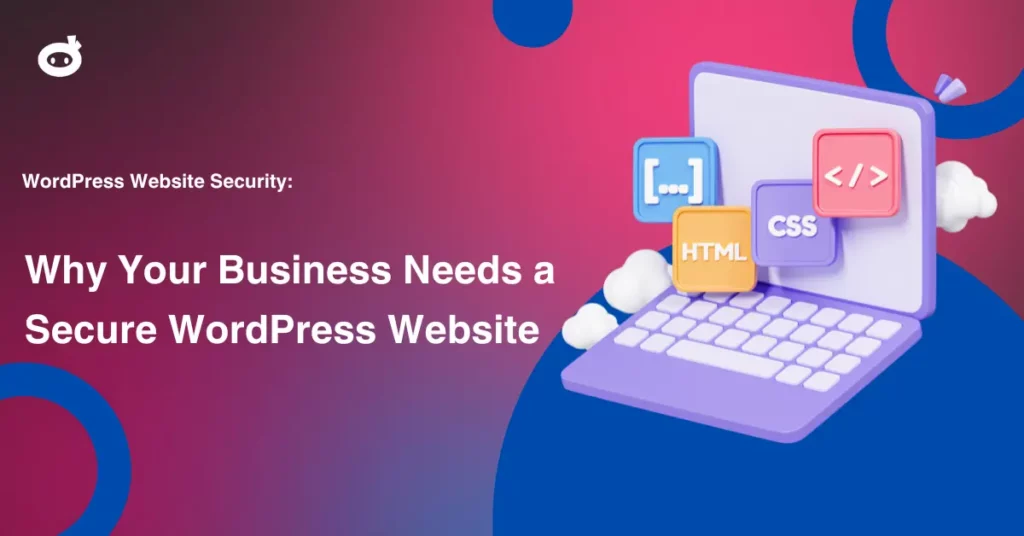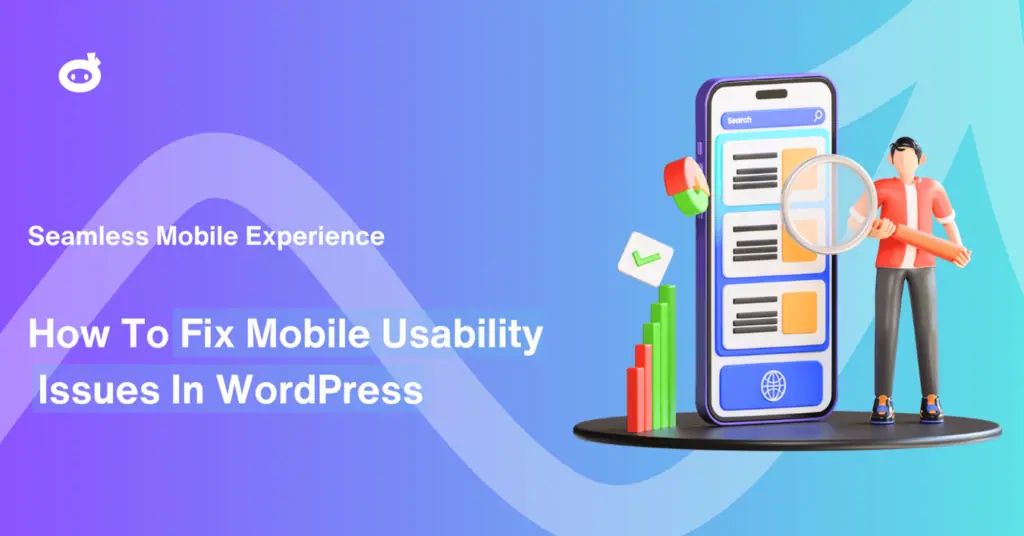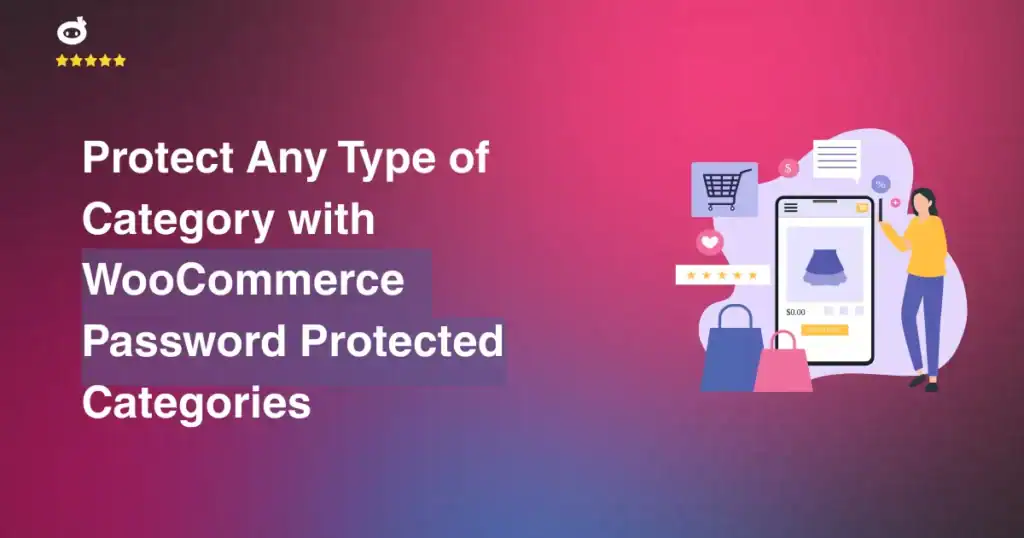Online forms are a vital tool for WordPress websites, enabling businesses to collect valuable user data, generate leads, and boost engagement. Yet, without proper security, these forms become an open door for cyber threats.
Hackers and malicious bots actively target unprotected forms, exploiting vulnerabilities to flood sites with spam, steal sensitive user information, and even inject harmful code. A single security lapse could lead to data breaches, compromised login credentials, or the spread of phishing attacks that deceive users into sharing personal details. These risks not only damage a website’s reputation but can also result in financial losses and legal consequences.
Strengthening form security is essential for safeguarding both site owners and visitors. Simple yet effective measures, like CAPTCHAs, SSL encryption, and input validation—help block automated attacks and prevent data leaks. Security plugins add an extra layer of protection, while regular updates and backups ensure vulnerabilities are patched before they can be exploited.
Prioritizing security is more than just a best practice; it’s a commitment to user trust and seamless website functionality. In the next section, we’ll explore these protective measures in detail to keep your WordPress forms safe.
Contents
- 1 Why Form Security Matters (A Lot!)
- 2 The Biggest Cyber Threats Hiding in Your WordPress Forms
-
3 Build Hack-Proof Forms in WordPress: A Step-by-Step Guide
- 3.1
- 3.2 No Plugin? No Problem! Secure Your WordPress Forms Manually
- 3.3 1. Sanitize & Validate: Keep Harmful Inputs Out
- 3.4 2. Use Nonces: Your CSRF Shield
- 3.5 3. Kill Unnecessary Uploads: Reduce Risk
- 3.6 4. Server-Side Validation: Trust Code, Not Users
- 3.7 Spam & Bots? Shut Them Down!
- 3.8 1. reCAPTCHA – Let Humans In, Keep Bots Out
- 3.9 2. Honeypots – Lure Bots, Lock Them Out
- 3.10 3. Email Blacklists – Block Suspicious Signups
- 3.11 SSL & HTTPS: Encrypt Everything for WordPress Online Forms
- 3.12 4. Stay Secure: Update Your WordPress Forms Now!
- 3.13 5. Update Your WordPress Forms Now!
- 4 The Best Plugins for Bulletproof Forms
- 5 Free vs. Paid Security Solutions: What’s Worth It?
- 6 Go the Extra Mile: Next-Level Protection for WordPress Online Forms
- 7 Conclusion: Strengthen Your WordPress Forms Security
Why Form Security Matters (A Lot!)
WordPress online forms are a vital tool for businesses, enabling user engagement, data collection, and transactions. However, they also present security vulnerabilities that hackers exploit to steal sensitive data, gain unauthorized access, and compromise website integrity. Failure to secure these forms can result in data breaches, reputation loss, and legal penalties.
1. Protecting User Data & Privacy
WordPress forms handle critical user information, such as:
- Personal Identifiable Information (PII): Names, emails, phone numbers.
- Login Credentials: Usernames and passwords.
- Financial Details: Credit card numbers and billing addresses.
If this data is intercepted, users can fall victim to identity theft, financial fraud, and phishing scams. Moreover, data leaks damage brand reputation and erode trust, as customers avoid websites that mishandle sensitive information.
Cybercriminals exploit unprotected forms using:
- SQL Injection: Attackers manipulate form fields to access and modify website databases.
- Cross-Site Scripting (XSS): Hackers inject malicious scripts that steal user data and session cookies.
- Brute Force Attacks: Automated bots repeatedly attempt login credentials to gain backend access.
Once compromised, a website becomes vulnerable to data theft, unauthorized modifications, malware injections, and complete site takeovers.
3. Maintaining Website Reputation & SEO Rankings
A hacked website leads to:
- Google Blacklisting: Infected sites are flagged as unsafe, resulting in SEO penalties or de-indexing.
- Loss of Customer Trust: Security warnings deter visitors, causing lower engagement and conversion rates.
- Phishing & Malware Risks: Attackers use compromised sites to spread malware or redirect users to malicious pages.
Rebuilding a website’s credibility after a security incident can take months, causing long-term business setbacks.
4. Avoiding Legal Liabilities & Compliance Issues
Data privacy laws impose strict security obligations, including:
- GDPR (EU): Requires websites to obtain explicit user consent and protect collected data.
- CCPA (California): Grants users the right to know, access, and delete their personal information.
- PCI-DSS: Mandates secure handling of payment card transactions to prevent fraud.
Non-compliance can lead to substantial fines, lawsuits, and operational restrictions, making data security a legal necessity.
Securing WordPress online forms is not optional, it’s essential. A breach can result in stolen data, business disruptions, legal issues, and SEO penalties. Protecting your forms ensures customer trust, regulatory compliance, and business continuity.
The Biggest Cyber Threats Hiding in Your WordPress Forms
Your WordPress forms might look innocent, but lurking beneath the surface are cyber threats that can compromise your website’s security. Hackers exploit vulnerabilities in online forms to steal data, inject malicious code, and even take control of your site. Here are the most significant threats you need to guard against:
1. XSS Attacks: The Silent Script Injectors
Cross-site scripting (XSS) is one of the most common threats to WordPress forms. Attackers inject malicious scripts into your form fields, which execute when unsuspecting users interact with them.
Why It’s Dangerous:
- Hackers can steal cookies, login credentials, or even take over user sessions.
- Malicious scripts can deface your website or redirect users to harmful sites.
How to Protect Your Forms:
- Implement input sanitization to filter out harmful code.
- Use Content Security Policy (CSP) headers to restrict script execution.
- Employ WordPress security plugins like Wordfence or Sucuri.
2. SQL Injections: Hackers Rewriting Your Database
SQL Injection (SQLi) attacks occur when hackers insert rogue SQL commands through form fields, potentially gaining access to your database.
Why It’s Dangerous:
- Attackers can retrieve sensitive user data, including passwords and payment information.
- Hackers can manipulate or delete your database entries, causing website failure.
How to Secure Your Forms:
- Use prepared statements and parameterized queries in your database interactions.
- Avoid direct SQL queries in form processing scripts.
- Enable Web Application Firewalls (WAF) to detect and block SQL injection attempts.
3. CSRF Attacks: When Users Unknowingly Get Tricked
Cross-Site Request Forgery (CSRF) tricks users into executing unwanted actions on your site, like changing passwords or making unauthorized transactions.
Why It’s Dangerous:
- Hackers exploit authenticated users to perform malicious actions.
- This can lead to unauthorized account access and sensitive data theft.
How to Prevent CSRF Attacks:
- Implement CSRF tokens in your WordPress forms.
- Restrict form submissions to logged-in users where necessary.
- Use WordPress security plugins with built-in CSRF protection.
4. Brute Force Attacks: Bots Cracking Your Passwords
Brute force attacks involve automated scripts attempting various password combinations to gain unauthorized access.
Why It’s Dangerous:
- Weak passwords are easily cracked, leading to admin panel access.
- Can be used to inject malware, deface websites, or steal data.
How to Prevent Brute Force Attacks:
- Enforce strong password policies for all users.
- Limit login attempts using plugins like Limit Login Attempts Reloaded.
- Implement two-factor authentication (2FA) for added security.
5. Spam Tsunami: Fake Submissions Flooding Your Site
Spambots target WordPress forms to send fake submissions, slowing down your website and filling your database with junk data.
Why It’s Dangerous:
- Overloaded servers can cause website performance issues.
- Fake messages make it harder to find legitimate user inquiries.
- Can be used for phishing attacks and spreading malware.
How to Stop Spam Submissions:
- Use CAPTCHA solutions like Google reCAPTCHA.
- Implement honeypot fields to detect and block bots.
- Install anti-spam plugins like Akismet.
WordPress online forms are prime targets for cybercriminals. By securing inputs, using security plugins, enforcing authentication, and blocking spam, you can safeguard your forms effectively.
Build Hack-Proof Forms in WordPress: A Step-by-Step Guide
No Plugin? No Problem! Secure Your WordPress Forms Manually
WordPress plugins simplify form security, but they aren’t the only solution. If you prefer a leaner approach, you can implement essential security measures manually. Here’s how:
1. Sanitize & Validate: Keep Harmful Inputs Out
Sanitization and validation ensure that user inputs don’t contain harmful scripts or malicious data.
- Sanitization cleans input data before storing or using it.
- Validation ensures data follows the expected format.
- This simple step prevents SQL injection, XSS, and other exploits.
2. Use Nonces: Your CSRF Shield
Cross-Site Request Forgery (CSRF) exploits authenticated users by tricking them into making unintended actions. WordPress nonces (numbers used once) help prevent this.
- Adding a nonce field to your form ensures security.
- Verifying the nonce on submission ensures that only legitimate users can submit your form.
3. Kill Unnecessary Uploads: Reduce Risk
File uploads introduce risks, including malware injections. If file uploads aren’t necessary, disable them entirely.
- Avoid using file upload options unless required.
- If uploads are needed, restrict file types and sizes to prevent attackers from uploading harmful scripts disguised as images.
4. Server-Side Validation: Trust Code, Not Users
Even if you implement client-side checks, always validate inputs server-side.
- Required fields should always be checked.
- Proper data types should be enforced.
- Unexpected input lengths should be rejected to prevent buffer overflows.
Implementing these steps enhances security, improves performance, and gives you greater control. Stay vigilant, and your forms will remain safe.
-
Spam & Bots? Shut Them Down!
Online forms are essential for gathering leads and engaging with users, but they also attract unwanted spam and bots. Keeping them secure ensures quality submissions and a smooth user experience. Here’s how you can fight back:
1. reCAPTCHA – Let Humans In, Keep Bots Out
Google’s reCAPTCHA is a simple yet powerful tool to differentiate real users from bots.
- Invisible reCAPTCHA runs in the background, analyzing user behavior without extra clicks.
- Checkbox reCAPTCHA (“I’m not a robot”) adds a simple verification step.
-
Image-based challenges ensure only humans proceed.
🔹 Tip: Use v3 for the most seamless experience—it scores users and blocks suspicious activity automatically.
2. Honeypots – Lure Bots, Lock Them Out
Honeypots are hidden fields in your form that humans never fill out—but bots do. When a bot submits the form with this field filled, it’s flagged as spam.
- No user friction – No extra clicks or puzzles.
-
Works silently – Traps automated scripts before they reach your inbox.
🔹 Tip: Many WordPress form plugins, like WPForms and Gravity Forms, include built-in honeypots.
3. Email Blacklists – Block Suspicious Signups
Prevent shady users from entering your system by using email blacklists.
- Block disposable emails (like Mailinator).
- Blacklist-specific domains are known for spam.
-
Filter suspicious patterns, like emails with random characters.
🔹 Tip: Use plugins like Spamhaus or CleanTalk for real-time filtering.
A honeypots, and email blacklists ensure your WordPress forms stay spam-free while maintaining a seamless experience for genuine users.
-
SSL & HTTPS: Encrypt Everything for WordPress Online Forms
Why HTTPS is a Must?
Running your WordPress site on HTTP leaves user data vulnerable to hackers. Without encryption, sensitive information like passwords and payment details can be intercepted. HTTPS, powered by SSL (Secure Sockets Layer) encryption, secures data transfer and builds trust among users.
Benefits of HTTPS:
- Encryption: Protects data from unauthorized access.
- Authentication: Ensures visitors interact with the legitimate site.
- SEO Boost: Google favors HTTPS sites in rankings.
- Trust Indicator: A padlock symbol reassures users.
How to Install SSL on WordPress (Step-by-Step)
-
Choose an SSL Certificate
- Free: Let’s Encrypt (via hosting providers like Bluehost, SiteGround, or Cloudflare).
- Paid: Premium SSL from providers like GoDaddy or Namecheap for extra security.
-
Install the SSL Certificate
- Many hosting providers offer one-click SSL installation via cPanel.
- For manual setup, generate a CSR and upload it to your provider.
-
Update WordPress Settings
- Go to Settings → General and update WordPress Address (URL) and Site Address (URL) to https://.
-
Force HTTPS
- Use the Really Simple SSL plugin to redirect all HTTP traffic to HTTPS.
-
Update Internal Links
- Use Better Search Replace to change http:// URLs to https://.
-
Check for Mixed Content Issues
- Use Chrome DevTools or Why No Padlock? to identify unsecured resources.
-
Verify SSL Installation
- Test your site using SSL Labs’ SSL Test to confirm the proper setup.
Securing WordPress online forms with SSL & HTTPS is essential. With encryption in place, your site stays secure, SEO-friendly, and trustworthy.
4. Stay Secure: Update Your WordPress Forms Now!
Your WordPress forms are a prime target for cyber threats. Neglecting updates and using outdated plugins is like leaving your front door unlocked for hackers. Here’s why staying updated is essential:
1. Updates Provide Instant Security Fixes
- Developers constantly patch vulnerabilities. Every update strengthens security.
- Hackers exploit outdated code. Running old versions increases the risk of data leaks and malware.
- Even minor updates often contain critical security patches. Ignoring them exposes your site.
2. Outdated Plugins Invite Hackers
- Plugins with security flaws are the easiest entry point for cyberattacks.
- Abandoned plugins no longer receive security updates, making them a ticking time bomb.
- Always check plugin updates and remove outdated ones.
3. Automate Updates for Faster Protection
- Enable auto-updates to apply fixes instantly.
- If manual updates are preferred, schedule frequent checks to avoid security gaps.
- Use a backup plugin to restore your site if an update causes issues.
Security is a continuous effort. Stay vigilant, update consistently, and protect your WordPress forms from cyber threats!
5. Update Your WordPress Forms Now!
Your WordPress forms are a prime target for cyber threats. Neglecting updates and using outdated plugins is like leaving your front door unlocked for hackers. Here’s why staying updated is essential:
1. Updates Provide Instant Security Fixes
- Developers constantly patch vulnerabilities. Every update strengthens security.
- Hackers exploit outdated code. Running old versions increases the risk of data leaks and malware.
- Even minor updates often contain critical security patches. Ignoring them exposes your site.
2. Outdated Plugins Invite Hackers
- Plugins with security flaws are the easiest entry point for cyberattacks.
- Abandoned plugins no longer receive security updates, making them a ticking time bomb.
- Always check plugin updates and remove outdated ones.
3. Automate Updates for Faster Protection
- Enable auto-updates to apply fixes instantly.
- If manual updates are preferred, schedule frequent checks to avoid security gaps.
- Use a backup plugin to restore your site if an update causes issues.
Security is a continuous effort. Stay vigilant, update consistently, and protect your WordPress forms from cyber threats!
The Best Plugins for Bulletproof Forms
Securing online forms is crucial to prevent spam, data breaches, and cyber threats. WordPress offers powerful security plugins that ensure your forms remain impenetrable. Here are the top three plugins to keep your forms safe:
1. Wordfence – The All-in-One Security Shield
Wordfence is a powerhouse in WordPress security. Its Web Application Firewall (WAF) blocks malicious traffic before it reaches your site. It detects brute-force attacks and prevents unauthorized logins. With real-time threat intelligence, your online forms remain protected from evolving cyber threats.
2. Sucuri – Advanced Firewall & Malware Defense
Sucuri offers a cloud-based firewall that filters out suspicious traffic, blocking bots and hackers before they can exploit your forms. It provides DDoS protection, malware scanning, and intrusion prevention, ensuring your data remains untouchable.
3. WPForms – Spam-Proof & Hacker-Resistant
WPForms isn’t just user-friendly; it also includes built-in spam protection with Google reCAPTCHA and Honeypot technology. It prevents automated bots from submitting spam while maintaining form integrity.
Use these plugins together to create an unbreakable defense for your WordPress forms!
Free vs. Paid Security Solutions: What’s Worth It?
Securing your WordPress online forms is crucial to prevent data breaches, spam, and unauthorized access. With so many security tools available, choosing between free and paid solutions can be challenging. Here’s a breakdown to help you decide what’s truly worth paying for.
Free Security Tools: A Good Starting Point
Free security solutions offer essential protection for your WordPress forms. They provide:
- Basic Spam Protection – CAPTCHA, honeypot fields, and Akismet help block spambots.
- Limited Firewall & Malware Scanning – Plugins like Wordfence and Sucuri offer basic scanning and firewall rules.
- Login Security – Two-factor authentication (2FA) and login attempt limiting help secure access.
- SSL & Encryption – Ensures encrypted data transmission to protect user input.
These tools are great for small websites but may lack advanced protection, real-time monitoring, and proactive threat prevention.
Paid Security Plugins: Advanced Protection
Premium security tools go beyond basic protection with:
- Real-Time Threat Detection – Continuous monitoring for malware, brute force attacks, and vulnerabilities.
- Comprehensive Firewall Protection – Advanced rules to block sophisticated threats before they reach your site.
- Automated Backups & Recovery – Quick restoration options in case of an attack.
- Premium Support & Updates – Dedicated customer support ensures faster issue resolution.
What Should You Pay For?
If your site handles sensitive user data, and customer transactions, or has high traffic, investing in premium security is essential. Top features worth paying for include:
- Advanced firewall protection for real-time threat prevention.
- Automated malware removal to prevent damage.
- Regular security audits to detect vulnerabilities early.
- Priority support to resolve security issues swiftly.
Free tools offer a solid foundation, but premium solutions provide comprehensive security and peace of mind. If your website is business-critical, investing in a paid security plugin is worth the cost.
Go the Extra Mile: Next-Level Protection for WordPress Online Forms
Your WordPress forms collect valuable data, but leaving them unprotected invites trouble. Basic security isn’t enough, take an extra step with these advanced strategies.
1. Restrict Access: Not Everyone Needs Control
Granting unrestricted access to your forms increases the risk of misuse. Keep form control in the hands of only those who need it.
- Role-Based Permissions: Limit editing or form creation rights to trusted users.
- Password-Protected Forms: Require authentication before accessing sensitive forms.
- Disable Public Access: If a form isn’t meant for everyone, restrict its visibility.
2. 2FA Login: Double the Security
Hackers despise two-factor authentication (2FA) because it adds a strong security layer beyond just a password.
- SMS or App-Based Authentication: Require a one-time code sent via SMS or authentication apps like Google Authenticator.
- Email Verification: Ask users to confirm login attempts via email.
- Hardware Keys: For ultimate security, use physical security keys like YubiKey.
3. IP Blocking: Keep Suspicious Visitors Out
Repeated login attempts and unusual traffic patterns can indicate an attack. Blocking suspicious IPs helps minimize threats.
- Manual IP Blacklisting: Identify and block IPs that repeatedly fail login attempts.
- Country-Based Blocking: If you don’t expect visitors from certain regions, restrict access.
- Automated Security Plugins: Use tools like Wordfence to automatically detect and block harmful IP addresses.
4. Web Application Firewall (WAF): Your 24/7 Security Guard
A Web Application Firewall (WAF) acts as a protective shield against cyber threats.
- Blocks Malicious Traffic: Stops SQL injections, cross-site scripting (XSS), and brute-force attacks.
- Monitors Activity in Real-Time: Detects suspicious patterns and mitigates threats before they cause harm.
- Cloud-Based vs. Local WAF: Choose between cloud-based services like Cloudflare or locally installed plugins for tailored protection.
Security is an ongoing battle. By restricting access, enforcing 2FA, blocking suspicious IPs, and using a WAF, you create a fortress around your WordPress forms. Don’t wait for a breach, take action today!
Conclusion: Strengthen Your WordPress Forms Security
Online forms are a critical part of any WordPress website, but they can also be a target for cyber threats. Hackers, spammers, and data thieves exploit weak security measures, putting sensitive information and user trust at risk. A single breach can lead to stolen data, financial loss, and irreversible damage to your website’s reputation. Ignoring form security is not an option, it’s a vulnerability waiting to be exploited.
To keep your site and users safe, you need a multi-layered defense. Enable reCAPTCHA and anti-spam tools to block bots, use secure plugins with regular updates, and encrypt data with SSL for privacy protection. Strengthen authentication with two-factor verification (2FA) and limit form submissions to prevent abuse. Most importantly, stay ahead of threats by updating WordPress and monitoring form activity with security logs.
Security is not a one-time task, it’s an ongoing battle. Take action today! Secure your online forms, safeguard your website, and protect your users. Don’t wait for a breach to remind you of the risks. Strengthen your defenses now and ensure a safer digital experience for everyone. Your website’s security starts with you, act now!
Written by Lars Koudal









